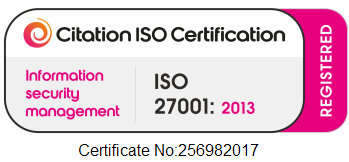Challenging the view of a career in social care could boost recruitment
It seems that every headline about social care simply must have the word “Crisis!” in close attendance. While it is true that there is a deficit in the workforce in the care industry, a change in the advertisement of situations vacant could be the key to unlocking the door for large numbers of new recruits.
In many societies it goes without saying that when a member of the family needs help for whatever reason – be it old age, infirmity or any kind of learning difficulty – then the family will take on the responsibility of providing the care needed.
There are several reasons why this is not always the case in this country. For many it is too much of an extra burden if the caring is not a shared responsibility. If left to just one person the strain can be too much, depending on the level of the person’s needs and the other commitments of the carer (for example children or work).
We have, thankfully, a safety net wherein there are care provisions in place for the most vulnerable members of society. Assistance is available for those most in need to provide help, care and protection from harm. There are people who need help with getting out of bed, washing and dressing, remembering to take medicines or help around the house. There are instances when it helps just for them to have someone to talk to over a cup of tea.
The social care system is not just there for the elderly of course, it is designed to meet our demands whenever we find ourselves in a position of vulnerability at every stage of our lives: from child protection to end of life care.
This net has been getting more and more stretched as time goes on as the UK’s population ages and the system is struggling to cope. There are almost 1.5 million people working in the care industry but at any one time there are around 110,000 vacancies that need to be filled.
The Department of Health and Social Care is set to launch the second phase of its advertising campaign to help fill 122,000 vacancies in social care. The first phase was reported to have been quite popular with an increase in the number of applications.
The problem for recruiters is the image that exists around care work in the minds of people who could make a difference with their application. Therein lies the solution to the crisis – social care could do with an image makeover!
Recruitment advertising should concentrate on changing how we think of social care, especially among younger generations who are a great untapped resource for the industry. It’s all about hearts and minds. Young people may think about working in a care environment and just see themselves working in a care home for the elderly and spending the day cleaning up the results of bodily functions. Until that image is removed from their minds and replaced with a truer reflection of what the job can entail, they will never consider it as a career option.
Advertising campaigns should concentrate on dispelling myths that have built up in the minds of young people: it is not a job for the middle-aged, it is not a job just for women, it is not unskilled and low paid, it is not just spending all day in care homes with a bedpan in your hand.
They should recognise that care can come in many forms, for many different age groups with different needs and in four main situations: residential care, day care, own home care and community care. These jobs pay above the minimum wage and can lead to qualifications and advancement opportunities. They are perfect for the young who provide energy and enthusiasm.
Most of all, any advertisement targeting recruits for the social care industry should reflect the satisfaction in having a career in which you know you have made a difference to so many lives.
Recruitive provide online recruitment solutions for the Care Sector in the UK, from large care organisations through to regional care associations. Our approach to recruitment and our end to end recruitment technology can help attract the best candidates into your care company.




Comments are closed